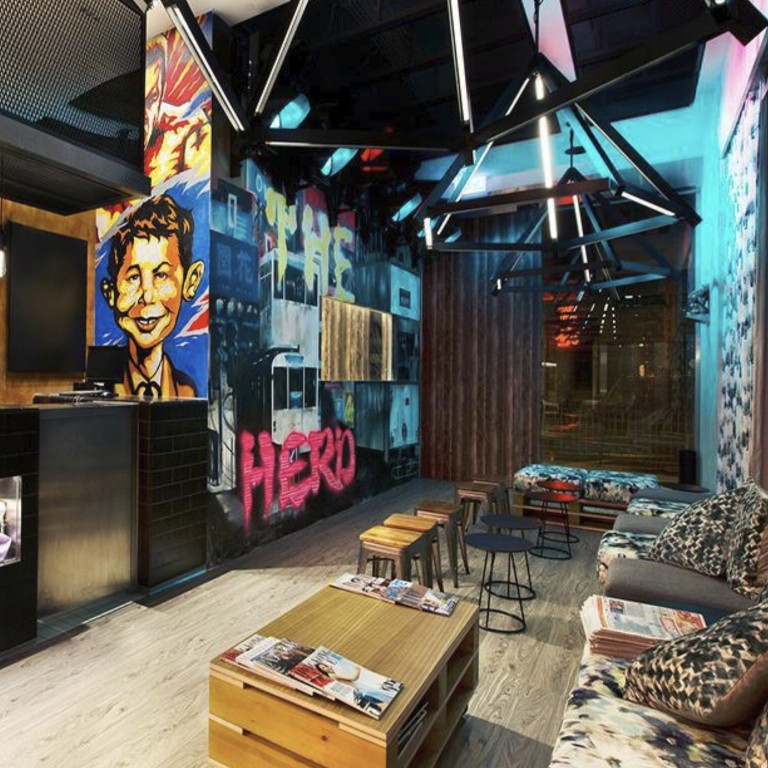
Hong Kong’s co-living operators and hotels join forces to give vacant rooms a new lease of life as coronavirus poses existential threat
- Some of Hong Kong’s more savvy co-living operators have been turning underused hotel rooms into shared units with longer leases
- Some co-living operators in Hong Kong had to slash their monthly rents by up to 50 per cent to fight for tenants amid the drop in occupancy caused by the pandemic
For example, Dash Living, a co-living operator in Hong Kong and Singapore, partnered with hotel group Ascott in March to offer monthly leases at their six hotels in Hong Kong and Singapore. At the same time, it collaborated with Ovolo Hotel to transform two en-bloc hotel properties in Aberdeen and Sheung Wan into co-living serviced residences.
On top of the services of traditional hotels, the transformed properties provide common areas, lounges, communal kitchens and other facilities for hotel residents. Another Singapore-based co-living operator, Hmlet, has partnered with 5-star Hotel Icon to manage residential stays at the hotel by launching the “Hmlet x Hotel Icon” room concept.
As the synergy between the hotels and co-living operators gains steam, more such collaborations are expected, with more hotels converting to co-living use, reshaping the hotel and accommodation industry now and in the future.
In Hong Kong, although the co-living sector is still in the nascent stage, some investors and landlords are keen to invest, as they can get higher returns than in other traditional asset classes. Data from Knight Frank shows that the co-living sector has low entry barriers and a higher rental yield, of 10 per cent to 13 per cent globally, compared to the current level of around 2 per cent market yields for residential properties in Hong Kong, according to data published by the Rating and Valuation Department.
For instance, the 37-room Paris Hotel in Jordan, Kowloon, gave up its tenancy before its lease expired because of poor business. In April, the new lease was taken up by co-living operator LINKo Living at HK$250,000 per month. In March, Hong Kong-based Weave living, a Warburg Pincus-backed co-living start-up, bought an en-bloc residential property at a prime location in Hong Kong’s Mid-Levels for HK$295 million as its first apartment complex. The softer prices in the market have created a positive opportunity for Dash Living’s first foray into the traditional rental housing market. With a greater diversification of product offerings, the co-living operators allow residents to benefit from a wider access of interconnected facilities across their portfolios and become part of a close-knit community.
Some co-living start-ups have continued to raise significant venture investment despite the economic uncertainty, reflecting investors’ optimism towards the market outlook and investment potential for co-living.
Dash Living secured US$8.8 million in its second round of funding in March to expand its business in Southeast Asia. The company aims to launch its serviced rental solutions in markets with a high density of millennials and where accommodation is expensive, such as Japan and Australia.
Given Hong Kong’s chronic housing shortage, exorbitantly expensive housing, and high rent-to-income ratio, the fundamentals of co-living, where operators have created an accommodation community of affordable rents, targeting young urban professionals with technology, co-working, lifestyle, flexibility and other benefits, are attractive, and operators are expected to thrive in the post-Covid world.
Lucia Leung is associate director of research and consultancy for Greater China at Knight Frank

